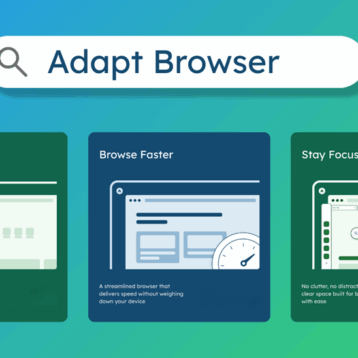Compared to finance, healthcare, and other industries, the real estate industry has historically lagged behind in terms of adopting AI. However, thanks to the proliferation of ChatGPT and LLM in 2023, AI experienced another resurgence in many markets, including real estate and construction project management.
The Rise of Construction CRMs
While AI is transforming the user experience and streamlining various processes in real estate portals, its impact extends beyond just search and property evaluation. One area where AI is making significant waves is construction project management. Enter construction CRMs, software platforms that leverage AI and automation to optimize workflows, improve communication, and boost efficiency for builders, developers, and other stakeholders involved in the construction process.
From managing project timelines and budgets to tracking resource allocation and facilitating collaboration, construction CRMs offer a comprehensive suite of tools that empower construction professionals to make data-driven decisions, minimize risks, and ultimately deliver projects on time and within budget. As the real estate industry embraces AI, the integration of construction CRMs is poised to become increasingly crucial for ensuring project success and driving overall industry growth.
In fact, McKinsey claims that generative AI can bring $110-180 billion or more in value for the real estate industry. Also, while, the PropTech market has experienced one of the lowest funding totals in history in 2023 according to Houlihan Lokey, most market analysts expect a rebound in 2024 and beyond.
So how can AI make a difference when implemented into real estate portals? In this article, we explore how some of the biggest real estate portals apply AI to streamline home search, property evaluation, trends forecasting, and investment potential assessment.

Zillow
Zillow, one of the largest real estate portals in the world, has leveraged AI since 2006 when they launched Zestimate, a machine learning-based algorithm that automatically estimates the value of homes.
In 2021, Zillow introduced a 3D Home tour, which revolutionized virtual property viewing. The 3D Home tour uses advanced machine learning models to generate interactive floor plans, detect room dimensions, and calculate square footage by analyzing panoramic photos of the property. This helps Zillow improve user engagement by providing a more immersive viewing experience for potential buyers.
In 2023, the company introduced a new AI-powered feature that allows users to search for homes in a conversational manner.This is a clear example of how AI is being used to automate and personalize the user experience in real estate portals. Similarly, construction CRMs are leveraging AI and automation to streamline project management workflows, improve communication between stakeholders, and optimize resource allocation. Instead of using filters to search for properties, users can simply enter phrases like “600k homes in LA with a garage and 2 bathrooms”. The addition of this new natural-language search feature is a result of the proliferation of LLMs like ChatGPT. Given Zillow’s success, Canadian RentSync and Florida-based Global Listings have recently announced the addition of similar features to their real estate portals.
Jitty
Some real estate companies choose to create products powered by large language models and AI and form new firms around them. One example is UK-based Jitty, a new real estate portal developed by former Deliveroo executives and backed by Google artificial intelligence fund.
From the pre-releases and official announcements, Jitty doesn’t appear to offer groundbreaking AI features, as LLM-based search engines and computer vision-powered models that can understand property photos have already been adopted by the platform’s competitors.
However, Jitty is the first real estate portal that has large language models at the core of its technology. The model can automatically extract data from multiple real estate websites and create eloquently summarized listings on its platform. Jitty will also distinguish itself by providing users with a set of tools that help them search for houses together.
With some of the world’s biggest investors like Sequoia behind the project and the hands-on industry experience of its executives, Jitty is likely to become a serious competitor to the industry’s big players. This is proven by the fact that while Jitty is yet to be launched, it already has over 2000 people on the waiting list.
House Canary
House Canary is an AI-based real estate portal that helps u find, buy, and sell homes. The platform assists them in evaluating property with a proprietary machine learning model that relies on historical sales data, macroeconomic data, capital markets data, social media sentiment, recent sales of similar homes in the area, and even land’s slope.
In general, the House Canary AI model is one of the most comprehensive on the market as it considers a broader economic view of the property market, which is especially valuable in times of economic instability. Moreover, by analyzing capital markets data in detail, the House Canary AI model also considers investment potential when figuring out a property’s final value. Besides calculating properties current prices, House Canary also excels at forecasting future market trends and neighborhood growth and can predict changes in property value over time as a result.
Trulia
Trulia, a large online real estate marketplace from the US, was one of the first to use AI to streamline user experience in real estate portals, and personalization is its main value proposition now. For example, Trulia uses computer vision to analyze photos of properties and reliably detect important features like ceramic kitchen floor tiles or quartz countertops. This helps sellers to market properties more efficiently by automatically highlighting attractive features of their homes. Trulia also enhances users’ search experience by allowing for more in-depth filtering.
Furthermore, Trulia employs a custom recommendation system based on a similarity graph. This AI-based proprietary system analyzes user actions on Trulia’s app, finds patterns, and suggests properties based on user behavior similarities. This helps to hyper-personalize product recommendations and increase conversions as a result.
AI is the present and future of real estate
Real estate has never been at the forefront of technological advancements, wary of rebuilding the long-established operational structure around yet another risky invention. But now, with the industry’s biggest players showing that overcoming these challenges is worth it, we can only expect more widespread adoption in the years to come. In the beginning of 2023 Pete Flint, the founder of Trulia, claimed that it was the best time to invest in PropTech, despite the apparent decline in the industry. McKinsey also claims that current economic challenges should be seen as opportunities to adopt innovative technologies and overcome new challenges with their help, singling out generative AI as a promising solution. As AI continues to revolutionize the real estate industry, construction CRMs are poised to play a key role in optimizing project management, boosting efficiency, and driving cost savings for builders and developers.










